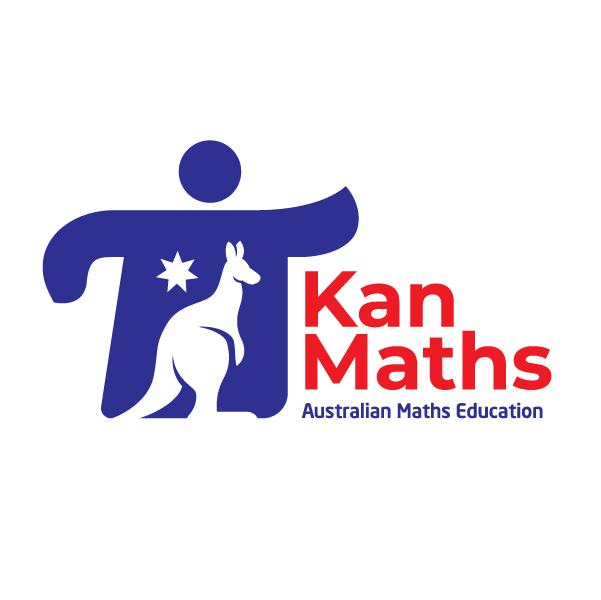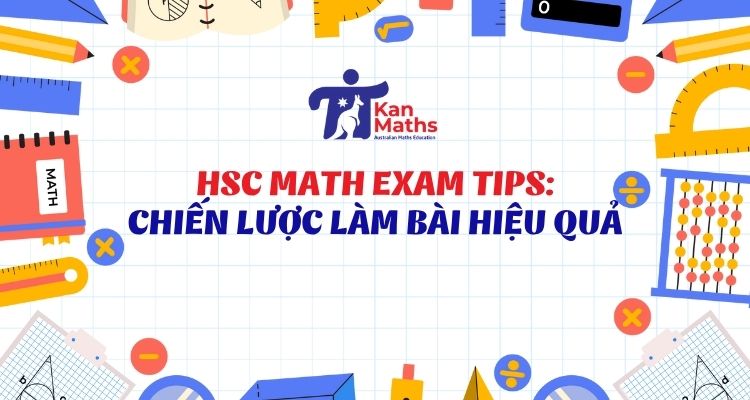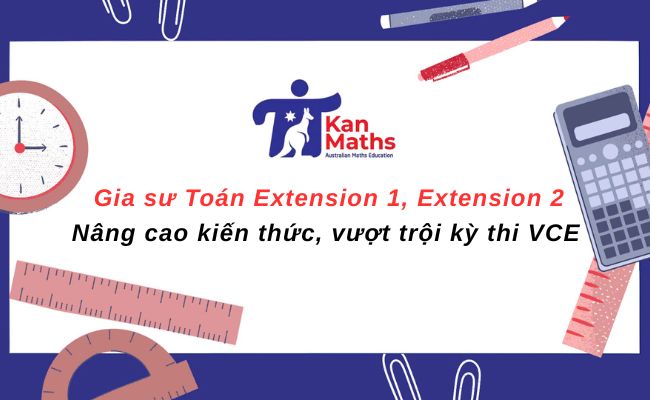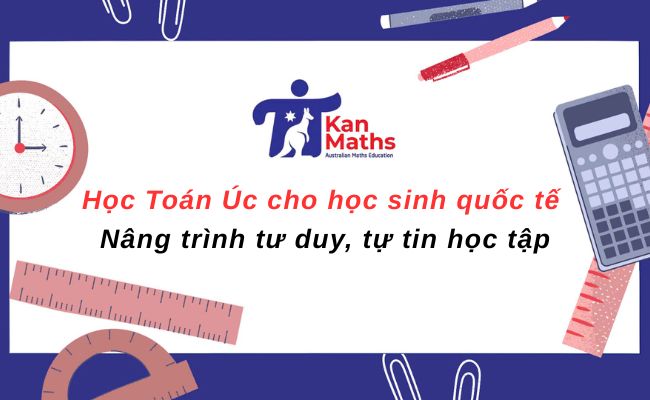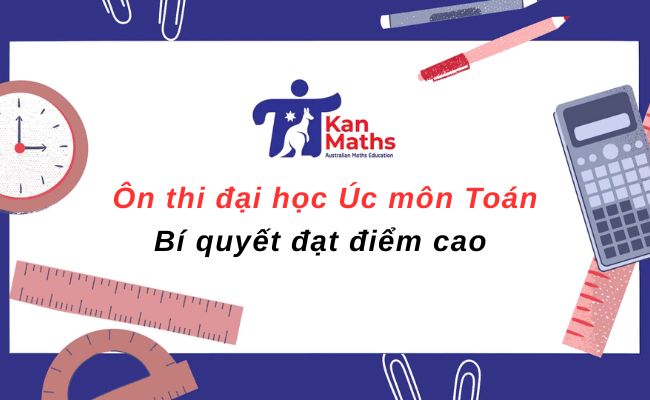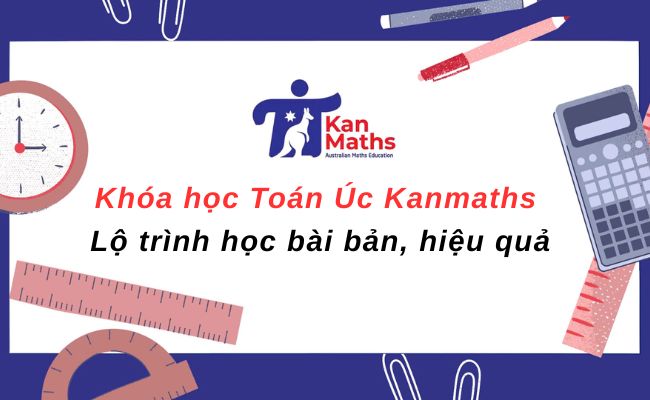HSC Math Exam success không chỉ phụ thuộc vào knowledge mà còn vào strategic approach và exam technique. Với proper preparation và smart tactics, bạn có thể maximize performance và achieve target score trong những giờ phút quan trọng nhất của HSC journey.
Tầm Quan Trọng Của Exam Strategy
HSC Math examinations require more than just mathematical knowledge - they demand strategic thinking, time management, và psychological preparation. Understanding exam dynamics và developing systematic approach có thể make difference between achieving target score và falling short của expectations.
Why exam strategy matters:
Performance optimization:
-
Time efficiency: Maximum marks trong limited time available
-
Error minimization: Reduce careless mistakes under pressure
-
Stress management: Maintain calm và focus throughout exam
-
Mark maximization: Strategic approach to partial credit
-
Confidence building: Systematic method reduces anxiety
Competitive advantage:
-
Differentiation: Stand out trong large cohort của students
-
Consistency: Reliable performance regardless của question difficulty
-
Adaptability: Handle unexpected question types effectively
-
Resilience: Recover quickly from difficult questions
-
Strategic thinking: Apply business-like approach to exam completion

Pre-Exam Preparation Strategy
Effective exam performance begins weeks before actual exam date với comprehensive preparation covering content mastery, technique development, và psychological readiness.
Content consolidation phase:
Knowledge organization:
-
Topic summaries: Condensed notes for each major area
-
Formula mastery: Quick recall của essential formulas
-
Method repertoire: Multiple approaches cho common problem types
-
Connection mapping: Understand relationships between topics
-
Weakness targeting: Intensive focus on problem areas
Skill refinement:
-
Speed development: Increase calculation efficiency
-
Accuracy improvement: Reduce computational errors
-
Pattern recognition: Quickly identify question types
-
Verification techniques: Multiple methods cho checking answers
-
Communication clarity: Clear presentation của solutions
Practice intensification:
Past paper simulation:
-
Timed conditions: Complete papers within exam time limits
-
Realistic environment: Simulate actual exam conditions
-
Multiple attempts: Various papers từ different years
-
Analysis process: Detailed review của performance patterns
-
Improvement tracking: Monitor progress over time
Technique development:
-
Question prioritization: Identify high-value, achievable questions
-
Time allocation: Optimal distribution across question difficulties
-
Partial credit strategies: Maximize marks when unable to complete
-
Technology integration: Efficient calculator và tool usage
-
Error recovery: Quick correction of mistakes discovered

Opening Strategy: First 15 Minutes
The initial phase của exam sets tone for entire performance và requires systematic approach to ensure optimal start.
Reading time utilization:
Strategic overview (5 minutes):
-
Complete scan: Quick look at all questions to assess paper
-
Difficulty assessment: Identify easy, medium, và hard questions
-
Time planning: Mental allocation based on question complexity
-
Confidence building: Note familiar topics to build positive mindset
-
Strategy selection: Choose order for attempting questions
Detailed planning (10 minutes):
-
Question categorization: Group by difficulty và topic
-
Priority ranking: Decide which questions to attempt first
-
Time budgeting: Specific minutes allocated to each section
-
Risk assessment: Identify questions to attempt if time permits
-
Backup planning: Alternative strategies if initial plan fails
Opening execution:
Confidence building start:
-
Easy questions first: Begin với topics you're most comfortable with
-
Quick wins: Secure marks từ straightforward calculations
-
Momentum building: Create positive psychological environment
-
Stress reduction: Early success calms nerves
-
Time banking: Finish easy questions quickly to save time
Systematic approach:
-
Clear working: Show all steps from beginning
-
Proper notation: Use correct mathematical symbols
-
Question numbering: Clearly label each response
-
Space management: Organize work neatly on page
-
Progress tracking: Monitor time spent versus progress made
Time Management Mastery
Effective time allocation là critical skill that separates high performers from average students trong HSC Math examinations.
Strategic time allocation:
Question weighting analysis:
-
Mark distribution: Allocate time based on available marks
-
Difficulty consideration: More time for complex questions
-
Personal strength: Extra time for familiar topics
-
Risk management: Time buffer for unexpected challenges
-
Review allocation: Reserve time for final checking
Practical time guidelines:
For 3-hour exam (180 minutes):
-
Easy questions (1-5): 12-15 minutes each (60-75 minutes total)
-
Medium questions (6-10): 15-18 minutes each (75-90 minutes total)
-
Hard questions (11-15): 10-15 minutes each (maximum attempt)
-
Review time: 15-20 minutes for checking và corrections
-
Buffer time: 5-10 minutes for unexpected situations
Time monitoring techniques:
Regular check-ins:
-
Quarter markers: Assess progress at 45-minute intervals
-
Question completion: Track time per question actually used
-
Adjustment decisions: Modify strategy based on actual progress
-
Cut-off discipline: Move on when time limit reached
-
Recovery planning: Strategies when behind schedule
Emergency time management:
-
Triage decisions: Focus on questions you can complete
-
Partial solutions: Show method even if unable to finish
-
Strategic skipping: Temporarily skip difficult parts
-
Quick marking: Rapid identification của final answers
-
Last-minute priorities: Focus on high-value, quick marks
Question Attack Strategies
Different question types require specific approaches to maximize efficiency và accuracy trong exam conditions.
Multiple choice tactics (if applicable):
Efficient selection:
-
Elimination method: Remove obviously incorrect options
-
Estimation techniques: Use approximation to narrow choices
-
Back substitution: Check answers by plugging into original
-
Pattern recognition: Look for familiar mathematical relationships
-
Time limits: Maximum 2-3 minutes per multiple choice
Short answer optimization:
Direct approach:
-
Formula identification: Recognize which formula applies
-
Clear substitution: Show values being inserted
-
Step-by-step calculation: Logical progression of work
-
Unit verification: Check answer units make sense
-
Final answer highlighting: Clearly mark conclusion
Extended response mastery:
Comprehensive solutions:
-
Problem analysis: Break complex questions into parts
-
Method selection: Choose most efficient solution path
-
Clear communication: Explain reasoning và steps
-
Verification integration: Check answers within solution
-
Professional presentation: Neat, organized work
Partial credit optimization:
-
Method marks: Show approach even if calculation incomplete
-
Intermediate steps: Demonstrate understanding của process
-
Alternative attempts: Try different methods if first fails
-
Logical reasoning: Explain thinking behind solutions
-
Clear labeling: Identify what each step represents

Calculator và Technology Strategy
Modern HSC Math exams require sophisticated technology integration to achieve optimal performance và efficiency.
Calculator mastery:
Pre-exam preparation:
-
Function familiarity: Know all relevant calculator operations
-
Shortcut learning: Efficient key sequences for common operations
-
Memory usage: Store frequently used values
-
Graph interpretation: Understand visual output
-
Error recognition: Identify when calculator results seem wrong
Exam execution:
-
Verification tool: Use calculator to check manual calculations
-
Complex computation: Let calculator handle tedious arithmetic
-
Graph analysis: Visualize functions để understand behavior
-
Statistical functions: Utilize built-in statistical capabilities
-
Time efficiency: Balance calculator use với manual methods
Technology integration:
Approved software usage:
-
Reference sheet coordination: Combine formula sheet với calculator
-
Multiple verification: Check answers using different methods
-
Error detection: Use technology to identify mistakes
-
Efficiency optimization: Choose best tool for each calculation
-
Backup methods: Manual alternatives when technology fails
Error Prevention và Recovery
Systematic approach to avoiding mistakes và quickly correcting errors when they occur.
Common error prevention:
Calculation accuracy:
-
Double-checking: Verify arithmetic at each step
-
Unit consistency: Maintain same units throughout
-
Order of operations: Careful attention to mathematical precedence
-
Sign tracking: Monitor positive và negative values
-
Decimal placement: Accurate positioning của decimal points
Conceptual errors:
-
Formula verification: Ensure correct formula selection
-
Variable identification: Clear understanding của what each symbol represents
-
Domain awareness: Check answers within reasonable ranges
-
Context validation: Ensure mathematical answers make practical sense
-
Method appropriateness: Use suitable techniques for each problem type
Error recovery strategies:
Quick identification:
-
Answer reasonableness: Does result make sense?
-
Order of magnitude: Is answer approximately correct size?
-
Unit analysis: Do units work out correctly?
-
Boundary checking: Is answer within expected range?
-
Pattern consistency: Does answer fit with similar problems?
Efficient correction:
-
Systematic review: Check each step methodically
-
Alternative methods: Try different approach to verify
-
Calculation isolation: Identify exactly where error occurred
-
Clean restart: Begin again if error too complex to fix
-
Time consideration: Balance correction time với progress needs
Psychological Management During Exam
Mental state significantly impacts mathematical performance, requiring deliberate strategies for maintaining optimal mindset.
Stress management techniques:
Anxiety reduction:
-
Breathing exercises: Controlled breathing to maintain calm
-
Positive self-talk: Encouraging internal dialogue
-
Confidence reminders: Recall successful practice sessions
-
Perspective maintenance: Remember this is one exam of many
-
Focus redirection: Concentrate on current question only
Confidence building:
-
Early success: Start với easier questions to build momentum
-
Progress celebration: Acknowledge completed questions
-
Strength utilization: Focus on areas của expertise
-
Mistake normalization: Accept that some errors are normal
-
Recovery emphasis: Ability to bounce back from difficulties
Motivation maintenance:
Energy management:
-
Strategic breaks: Brief mental pauses when allowed
-
Physical awareness: Maintain good posture và comfort
-
Attention monitoring: Notice when focus begins to wane
-
Re-energizing techniques: Quick methods to restore alertness
-
Endurance pacing: Maintain consistent effort throughout
Final Review Strategy
Last phase của exam requires systematic approach to maximizing marks through careful review và correction.
Systematic review process:
Priority checking:
-
High-value questions: Review most important questions first
-
Calculation verification: Double-check arithmetic in key problems
-
Answer formatting: Ensure responses meet question requirements
-
Unit verification: Confirm all units correct và consistent
-
Final answer clarity: Clearly mark conclusions
Time-efficient review:
-
Strategic selection: Focus on questions most likely to have errors
-
Quick scanning: Rapid identification của obvious mistakes
-
Calculation spot-checks: Verify key computational steps
-
Answer reasonableness: Ensure results make sense
-
Presentation polish: Clean up unclear notation
Last-minute optimization:
Final improvements:
-
Missing details: Add any required explanations hoặc units
-
Clearer notation: Improve readability của mathematical expressions
-
Answer highlighting: Make final answers easily identifiable
-
Question completion: Fill in any obvious gaps
-
Professional presentation: Ensure work looks organized và complete
Subject-Specific Strategies
Different HSC Math courses require tailored approaches reflecting their unique characteristics và assessment patterns.
Math Advanced tactics:
Calculus optimization:
-
Integration techniques: Choose most efficient method
-
Related rates: Clear variable definition và differentiation
-
Optimization: Systematic constraint handling
-
Graph analysis: Use calculator để verify analytical results
-
Application contexts: Connect mathematics to real-world scenarios
Statistical reasoning:
-
Distribution identification: Recognize which distribution applies
-
Hypothesis testing: Follow systematic testing procedure
-
Confidence intervals: Interpret results trong context
-
Data analysis: Use technology appropriately for calculations
-
Communication: Explain statistical conclusions clearly
Math Standard approaches:
Financial mathematics:
-
Formula selection: Choose appropriate financial formulas
-
Technology utilization: Use calculator efficiently for complex calculations
-
Real-world interpretation: Explain results trong practical terms
-
Verification: Check answers for reasonableness trong context
-
Communication: Present solutions clearly for non-mathematical audiences
Network analysis:
-
Algorithm application: Follow systematic procedures
-
Diagram interpretation: Read network diagrams accurately
-
Optimization: Find best solutions efficiently
-
Technology integration: Use appropriate tools for calculations
-
Practical application: Connect results to real-world scenarios
Extension mathematics:
Advanced problem-solving:
-
Method selection: Choose most elegant solution approach
-
Proof techniques: Construct logical mathematical arguments
-
Pattern recognition: Identify underlying mathematical structures
-
Creative thinking: Develop original approaches to novel problems
-
Mathematical communication: Write clear, precise mathematical prose
Day-Of-Exam Logistics
Practical considerations for exam day that support optimal performance và reduce unnecessary stress.
Pre-exam routine:
Physical preparation:
-
Adequate sleep: 7-8 hours night before exam
-
Healthy breakfast: Nutritious meal để sustain energy
-
Appropriate clothing: Comfortable layers for temperature changes
-
Equipment check: All required materials properly organized
-
Early arrival: Sufficient time để settle in calmly
Mental preparation:
-
Confidence building: Review successful practice experiences
-
Strategy reminder: Brief review của planned approach
-
Relaxation techniques: Calm breathing và positive visualization
-
Focus establishment: Clear mind và ready attention
-
Goal confirmation: Remember target performance objectives
During exam management:
Logistical efficiency:
-
Material organization: Keep workspace neat và organized
-
Time monitoring: Regular awareness của clock
-
Physical comfort: Maintain good posture và positioning
-
Equipment management: Calculator, pens, ruler readily accessible
-
Distraction minimization: Focus only on own work
Post-Exam Reflection
After completing exam, strategic reflection helps with future performance và immediate next steps.
Immediate assessment:
Performance evaluation:
-
Completed questions: Count successfully finished problems
-
Difficulty management: How well challenging questions handled
-
Time utilization: Whether pacing was appropriate
-
Strategy effectiveness: Did planned approach work well
-
Confidence level: Overall feeling about performance
Learning identification:
-
Successful strategies: What worked well to repeat
-
Areas for improvement: What could be done better next time
-
Unexpected challenges: Questions hoặc situations not anticipated
-
Technology usage: How effectively tools were utilized
-
Stress management: How well anxiety was controlled
Future preparation:
Strategy refinement:
-
Method adjustment: Modify approach based on experience
-
Practice focus: Target areas that proved challenging
-
Time management: Adjust allocation based on actual performance
-
Technology integration: Improve tool usage efficiency
-
Confidence building: Reinforce successful elements
Mastering HSC Math Exams
HSC Math Exam success results from combination of solid knowledge, strategic thinking, và systematic execution. Effective exam technique can significantly boost performance beyond raw mathematical ability alone.
Key success principles:
-
Strategic preparation - comprehensive planning before exam day
-
Time mastery - efficient allocation và monitoring throughout
-
Technology integration - appropriate use của available tools
-
Error management - prevention, detection, và quick correction
-
Psychological control - maintaining optimal mindset under pressure
-
Systematic approach - consistent method for all question types
-
Adaptive thinking - flexibility when plans need adjustment
Remember: Excellence trong HSC Math exams requires practice của exam technique along với mathematical mastery. Strategic approach separates good students from great performers.
Nếu bạn cần personalized coaching về HSC Math exam strategies hoặc want to practice these techniques với expert guidance, đội ngũ experienced teachers tại KanMath có proven methods for helping students achieve peak exam performance.
Liên hệ ngay: 0963.29.6388 để nhận specialized exam preparation coaching và strategic guidance phù hợp với learning style, current level, và target goals của bạn.
Bài viết được biên soạn bởi đội ngũ giáo viên chuyên nghiệp tại KanMath - Trung tâm dạy toán Úc hàng đầu cho du học sinh Việt Nam.
